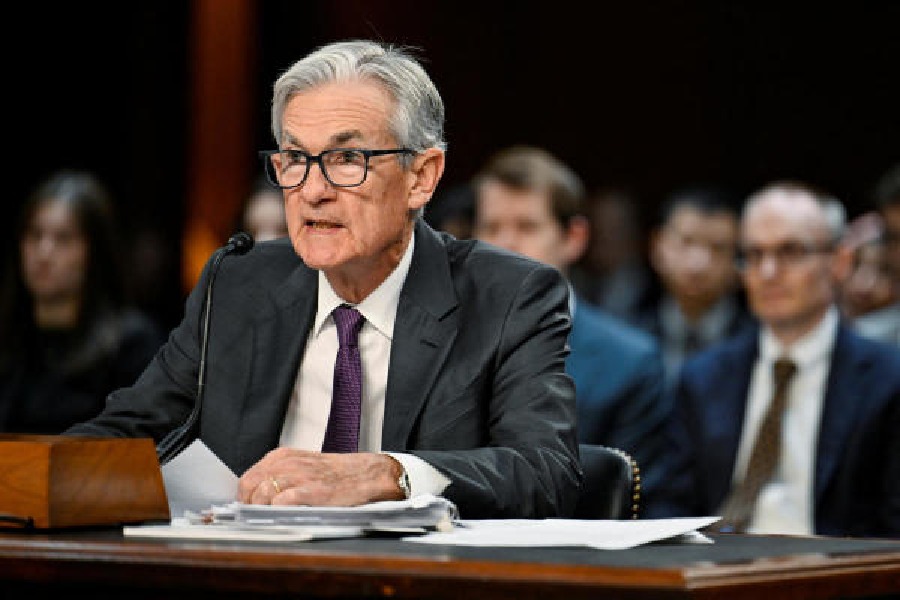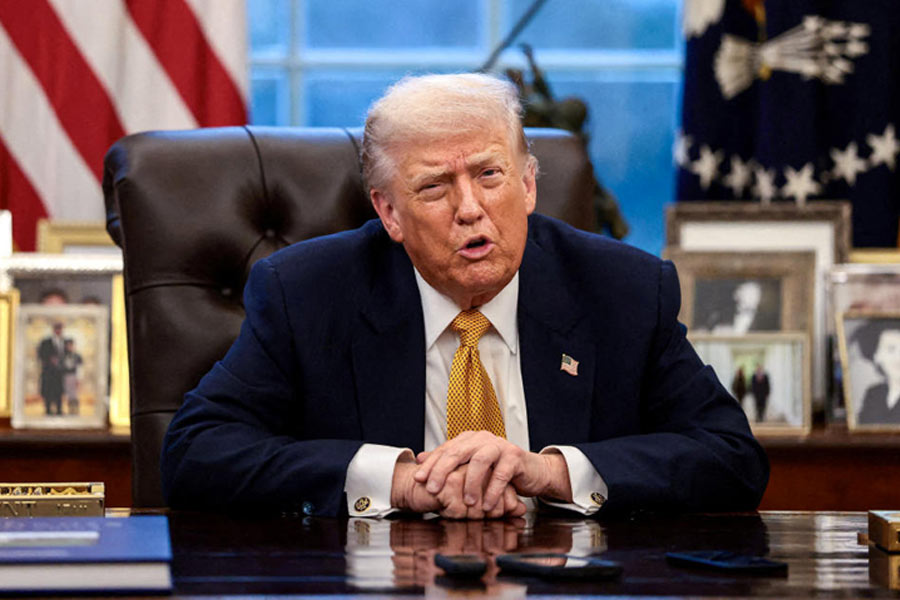Jerome Powell, chair of the Federal Reserve, said the central bank is focused on the “net effect” of President Donald Trump’s economic agenda, amid high uncertainty about which policies will actually be enacted, as he reiterated that officials are still not in a “hurry” to adjust interest rates.
“As we parse the incoming information, we are focused on separating the signal from the noise as the outlook evolves,” Powell said at an event Friday. “We do not need to be in a hurry, and are well positioned to wait for greater clarity.”
If inflation stays sticky but the economy remains strong, the Fed chair said the central bank can “maintain policy restraint for longer.” But if either the labour market were to weaken more than expected, or inflation were to rapidly decline, Powell said officials can “ease policy accordingly”.
His comments underscore the delicate balancing act the Fed is trying to navigate at a tenuous moment for the economy.
Speaking at the same event earlier Friday, Michelle Bowman, a Fed governor, said as inflation returns to the central bank’s 2 per cent target, the labour market and economic activity “will become a larger factor” in policy discussions.
The Fed is expected to hold interest rates steady at 4.25 per cent to 4.5 per cent when officials gather March 18-19, extending a pause that has been in place since January. But its decisions after that point may get more fraught, especially if the economy weakens and price pressures rise to the extent economists fear.
How significantly Trump’s tariffs will impact the economy is not yet known. The president has flip-flopped on levies he placed on Mexico and Canada this week but has kept the threat alive by issuing only a short-term reprieve. Sweeping retaliatory tariffs are also still on the table, as are other penalties on aluminum, steel and other products. The size of the impact depends on the duration of the policies and how fervently other countries protect themselves with retaliatory measures and how businesses and consumers adapt to higher costs.
The Fed is having to consider these implications alongside other policies Trump is pursuing, including mass deportations and steep cuts to government spending. Tax cuts and deregulation efforts, which make up the other part of the economic agenda, may help to bolster business activity, but to what extent is unclear.










